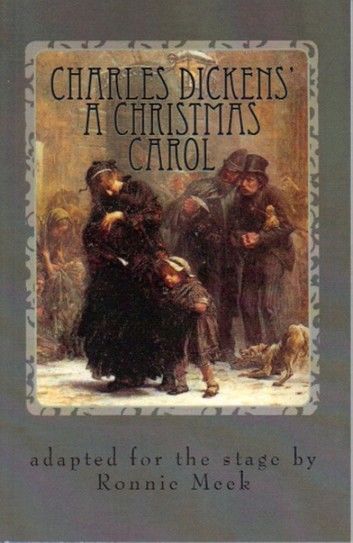| FindBook |
有 1 項符合
Charles Dickens' A Christmas Carol的圖書 |
 |
Charles Dickens' A Christmas Carol 作者:Ronnie Meek 出版社:WordCrafts Press 出版日期:2012-05-02 語言:英文 |
| 圖書館借閱 |
| 國家圖書館 | 全國圖書書目資訊網 | 國立公共資訊圖書館 | 電子書服務平台 | MetaCat 跨館整合查詢 |
| 臺北市立圖書館 | 新北市立圖書館 | 基隆市公共圖書館 | 桃園市立圖書館 | 新竹縣公共圖書館 |
| 苗栗縣立圖書館 | 臺中市立圖書館 | 彰化縣公共圖書館 | 南投縣文化局 | 雲林縣公共圖書館 |
| 嘉義縣圖書館 | 臺南市立圖書館 | 高雄市立圖書館 | 屏東縣公共圖書館 | 宜蘭縣公共圖書館 |
| 花蓮縣文化局 | 臺東縣文化處 |
|
|
Charles Dickens' novella, A Christmas Carol, first published in England on December 19, 1843, was almost single-handedly responsible for rejuvenating the old Christmas traditions of England, such as carol singing, while at the same time celebrating new traditions like the Christmas tree and sending Christmas cards. While the Christmas traditions portrayed in the novella are bursting with images of light, joy, warmth and life, it also contains strong images of darkness, despair, coldness, sadness and death, embodied by the story's miserly protagonist, Ebenezer Scrooge. Ultimately, it is a tale of redemption and spiritual awakening to the needs of one's fellow man.
Since its original publication, A Christmas Carol has never been out of print. It's popularity has continued to swell for more than a century and a half, and it has been repeated adapted in a a variety of artistic mediums including ballet, opera, films, Broadway musicals, a chamber orchestra presentation and even a mime production. There are, of course, multiple stage play adaptations of this beloved tale, each with their own particular spin on the story.
Charles Dickens' A Christmas Carol by American playwright Ronnie Meek, represents a faithful, fast-paced version of the tale. All of the favorite characters are there, from Tiny Tim to the Ghost of Christmas Yet to Come. The script is equally appropriate for large or small theatres.
|











